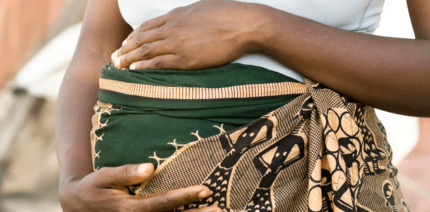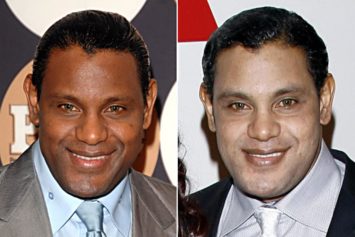Black is wack. White is right. Light skin is the right skin. “Beautiful black women, but I bet that b*tch look better red.” “I’m looking for a yellow bone long haired star.”
These are just a few of the quotes floating around in the media that have convinced women everywhere that the lighter your skin is, the more beautiful you are.
The push for light skinned women has even resulted in bleaching creams becoming popular products in the beauty market that everyone has access to – despite the damaging permanent effects that can result if the creams are used irresponsibly.
More and more each day we are faced with the harsh reality that if even in Africa, dark skin tones are no longer appreciated or seen as beautiful.
Studies have revealed that over a third of the women in South Africa bleach their skin in hopes of obtaining “white skin” so they can be beautiful.
One South African musician, Nomasonto “Mshoza” Mnisi, explained that she bleached her skin because she had a “passion for whiteness.”
All over the map, the epidemic is spreading and convincing the world that it’s only the “yellow bones,” the “red bones,” and the “light brights” that are attractive.
But why? Why should any woman be ashamed of her roots? Why should anybody feel as if they need to change their skin color in order to love the person they see in the mirror? Why is the woman with beautiful dark chocolate skin not being celebrated just as much as the woman who has a lighter complexion?
The dark skinned vs. light skinned debate has stemmed on for years and it is leaving young women feeling insecure and ugly when they are truly beautiful.
What makes the epidemic even more troubling is the fact that the beauty seen in light skinned women stems from slave days.
That’s right, our ancestors spent years sacrificing their lives for us to be equal and to free us from slavery and once we obtained that freedom we suddenly began judging one another on the very same principles that our ancestors fought against.
You see, in the days of slavery a mixed woman was considered to be better than a dark skinned woman because she contained the blood of a white person. She wasn’t just another slave girl, she was the descendant of a wealthy, intelligent, and prosperous white person.
Unfortunately, the love for women who are mixed (or at least appear mixed) has carried on throughout generations and now has been accepted as a social norm.
As if the cultural history behind what makes light skinned women beautiful isn’t troubling enough, the consequences of skin bleaching can extend much father than emotions and self esteem.
Doctors are releasing warning after warning to inform the public that skin bleaching creams cause blood and skin cancer. They also lead to skin burns, other various forms of skin damage, and ochronosis.
To put things in perspective, woman all over the globe are willing to risk their health and safety to look a little less “black” and a lot more “white.”
“I’m getting patients from all over Africa needing help with treating their ochronosis,” Dr. Noora Moti-Joosub of South Africa explained to the BBC. “There is very little we can do to reverse the damage and yet people are still in denial about the side effects of these products.”
Perhaps it isn’t just that they are in denial, but people are more willing to throw caution to the wind if it means that have any possibility of lightening their complexion.
Before you think it’s only women who are willing to risk skin cancer to be a “yellow bone,” however, many men are going to extremes to become lighter as well.
“I pray every day and I ask God, ‘God why did you make me black,’” said Jackson Marcelle, a Congolese hair stylist. “I don’t like being black. I don’t like black skin.”
Marcelle has done much more than just pray for light skin too. For years he has been undergoing “special injections” in hopes of lightening in skin tone.
For Marcelle, it’s not just history that has ruined the perception of dark skinned people – today’s society has done just as much to discourage people from embracing and loving their dark skin.
“Black people are seen as dangerous; that’s why I don’t like being black,” he admitted. “People treat me better now because I look like I’m white.”
An episode of “What Would You Do” on ABC put that very same theory to the test and received frightening results.
When they placed a black man in the middle of a park and instructed him to attempt to steal a bike, every one who passed by immediately threatened to call the police. Next they placed a white man in the same situation and not only did people walk by as if he wasn’t trying to saw the bike chain off the fancy ride, several strangers asked if the man needed help.
Skin bleaching is a dangerous epidemic, but for many people it’s seen as a solution: a way to look beautiful to get the mate of their dreams, a way to be treated fairly by others, a way to be accepted by the general population, a way to not be profiled by the police, a way to be anything except black.


